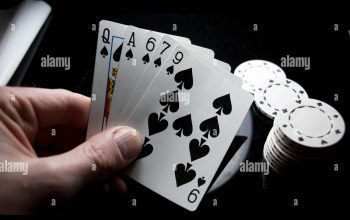Rummy is an intricate game of skill, strategy and mind games. It requires players to maintain an analytical mindset with sharp memories while remaining calm under pressure.
Skilled players constantly evaluate the risks and rewards associated with each action they take, showing flexibility and adaptability as they make decisions that maximize their chances of forming valid sequences or melds.
Basic techniques for tricking opponents
Rummy players require keen observational abilities and an excellent memory in order to compete at this game, since rummy requires them to assess the cards in their opponents’ hands and make informed decisions about how best to proceed with their own hands. Furthermore, strategic thinking improves mathematical capabilities which are useful in everyday life.
Mastering online rummy’s subtle nuances adds an engaging dimension to the game, turning every hand into an intense mental competition. Learning player behavior, cultivating emotional control and deciphering their betting patterns are essential parts of getting ahead in this competitive space.
Fundamental techniques of deception used by rummy players include creating misdirection and strategically hiding or revealing certain cards, both of which require high levels of skill to use effectively against opponents and shift game dynamics in one’s favor. Advanced strategic deception tactics involve tailoring such techniques to match changing game dynamics while using controlled volatility and surprise to disorient rivals and gain an edge.
Advanced techniques for strategic deception
Knowledge of opponents’ moves and anticipating their next step are integral parts of online Rummy. Players can do this by closely watching opponents’ discards, pick-up cards, and betting patterns – this allows them to stay one step ahead and change the game dynamic in their favor.
Mental skills required of an excellent Rummy player include strong memories, mental acuity and risk evaluation skills. Such qualities are necessary in online rummy games as they help improve cognitive awareness while decreasing stress levels and strengthening analytical and time management capabilities.
An accomplished Rummy player must be open-minded and flexible enough to learn from both wins and losses; this skill will foster positive thinking and increase confidence, leading to winning the game. Understanding how the rules of different Rummy variations impact mind games is also crucial; some variations might enhance an existing strategy while others limit it.
The line between strategy and trickery
Mastering Rummy requires striking the perfect balance. From inducing opponents into making mistakes through misdirection and withholding cards to adapting deceptive tactics as the game evolves and maximising points. Rummy game development studios strive to emulate these qualities in their digital offerings.
Success at online rummy lies in one’s ability to focus on the task at hand and not get sidetracked by bad cards or wrong moves, rather than allow bad cards or wrong moves to distract you. Doing this fosters focus and self-discipline while teaching one to persevere despite failure and learn from past errors. Dedication to the game translates directly into everyday life where focus and self-discipline are essential components for reaching goals; patience under pressure and staying calm are invaluable life skills taught through playing rummy which help cope with disappointments better while its competitive spirit can help improve problem-solving capabilities immensely!
Adaptive mind games
Adaptive AI can assist players in overcoming the natural limitations of their skills by offering strategies they might otherwise never discover on their own. But there’s a delicate balance to be struck between providing too much information via hints or tricks, and breaking players’ immersion.
Changes to game mechanics can also have the potential of disrupting the fantasy aspect of play. Huizinga [7] defines play as an activity undertaken for its own pleasure, that is separate from everyday demands and structured by rules: an “magic circle”.
Therefore, it is vitally important for adaptive elements in games to fit within this’magic circle’ by restricting potential effects of the system. A generalised player model can help achieve this aim more quickly than designing individual adaptive elements for every individual game – also providing for comparison between games as well as guidance of what limitations adaptive AI must impose on gameplay.




